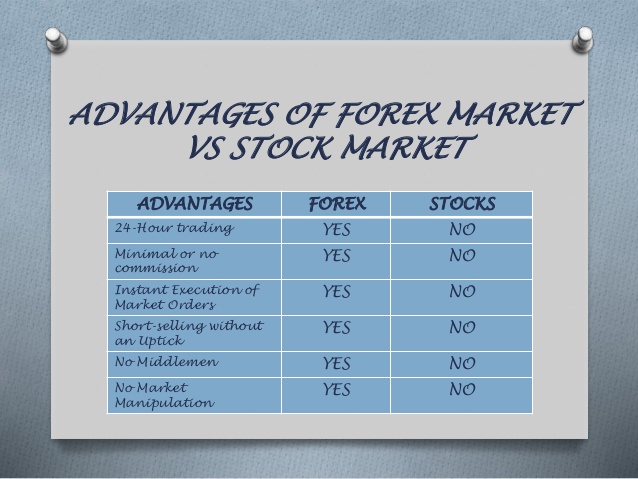
The Fed will increase interest rates. That means the best stocks to purchase now will reap the benefits. This isn't true of every company, though. While interest rates are likely to have an effect on certain companies' bottom lines, they could also prove to be an obstacle for others. How can you choose the best stocks to purchase now? To learn more about why some companies make good buys, read this article. You can then decide whether you want to purchase these stocks right away or keep them.
JPMorgan Chase
If you are thinking about buying JPMorgan Chase stock, now is the right time to do so. JPM shares are currently hugging a long-term trendline. Although the 2020 Covid crash temporarily halted the trend, it has since returned to its pre-pandemic benchmark level. This stock's longterm earnings outlook looks better due to a variety of factors. Read on for more insights.
Apart from its investment banking activities the company's many revenue sources makes it an attractive candidate for stock investors. It generates the largest portion of its revenues in the consumer banking market, with investment banking being second. The banking industry was hit hard by the recent pandemic. However, this trend is expected to change as more people realize the many revenue streams that the company offers. It is anticipating higher profits in 2013 and its dividend is increasing.

Redfin
Redfin stock is something you might consider buying. The housing market is falling and tech companies are often operating at a loss until the market recovers. Redfin could lose further money if the market falls. Redfin does have some other advantages that make it a good investment. Listed below are some of its pros and cons.
1. Redfin Stock: Is it a good investment? Despite recent layoffs, the company’s overall outlook remains grim. Redfin has seen steady growth, but it is still far away from reaching its full potential. Redfin's stock price is down about 50% since its IPO last year, and it's currently falling. It's unlikely that shares will fall in the future so investors should consider avoiding buying shares.
Shopify
Investors may be considering buying Shopify stock now despite the stock's high price. Between January 1, 2019 to mid-November 2021 the stock surged 11 times, thanks to rapid revenue growth and a large addressable market. But recent news suggests that Shopify's stock may be in for a correction, with its shares down more than 80% from their all-time high. Shopify will be slicing its stock 10-for-1 on June 28. However, this is unlikely to alter the investment thesis. This company is still a high-risk opportunity with high rewards.
The following are some things to consider when looking for Shopify stock. ETFs (exchange-traded funds) are a great option to invest in one stock. This strategy spreads risk over many companies, decreasing the possibility of losing your entire account. There are a few Shopify ETFs, including the Franklin Disruptive Commerce and Simplify Volt Fintech Disruption ETF.

Intuitive Surgery
If you are a surgeon, it might be a question of whether to buy intuitive Surgical stock now and wait for the next recession. The stock trades at 21 times revenue for the company over the past year. Its management recently warned investors that it might have a lackluster quarter ahead. A company's growing population should drive demand for less-invasive procedures. Postponed elective procedures will be available to those who survived the pandemic.
Intuitive saw strong Q1 results despite the challenging economy. However, the stock plunged 14%. This slow performance was due in part to management's outlook for next year. Management said that it would face challenges, as COVID-19 has forced many patients into postponing elective procedures. This could result in the stock dropping further. However, you can still purchase Intuitive Surgical stock today and reap its benefits in the future. You can get low fees and track the stock's growth over time.
FAQ
What are some advantages of owning stocks?
Stocks are less volatile than bonds. Stocks will lose a lot of value if a company goes bankrupt.
If a company grows, the share price will go up.
In order to raise capital, companies usually issue new shares. Investors can then purchase more shares of the company.
Companies can borrow money through debt finance. This gives them cheap credit and allows them grow faster.
A company that makes a good product is more likely to be bought by people. The stock will become more expensive as there is more demand.
As long as the company continues producing products that people love, the stock price should not fall.
How are Share Prices Set?
Investors decide the share price. They are looking to return their investment. They want to earn money for the company. They then buy shares at a specified price. Investors will earn more if the share prices rise. If the share value falls, the investor loses his money.
Investors are motivated to make as much as possible. This is why they invest into companies. It helps them to earn lots of money.
Are bonds tradable?
Yes, they do! As shares, bonds can also be traded on exchanges. They have been for many years now.
They are different in that you can't buy bonds directly from the issuer. You will need to go through a broker to purchase them.
This makes it easier to purchase bonds as there are fewer intermediaries. This means that you will have to find someone who is willing to buy your bond.
There are many types of bonds. While some bonds pay interest at regular intervals, others do not.
Some pay quarterly interest, while others pay annual interest. These differences make it possible to compare bonds.
Bonds can be very helpful when you are looking to invest your money. In other words, PS10,000 could be invested in a savings account to earn 0.75% annually. This amount would yield 12.5% annually if it were invested in a 10-year bond.
If all of these investments were accumulated into a portfolio then the total return over ten year would be higher with the bond investment.
How do I invest in the stock market?
Brokers allow you to buy or sell securities. Brokers buy and sell securities for you. Brokerage commissions are charged when you trade securities.
Banks are more likely to charge brokers higher fees than brokers. Banks often offer better rates because they don't make their money selling securities.
You must open an account at a bank or broker if you wish to invest in stocks.
Brokers will let you know how much it costs for you to sell or buy securities. Based on the amount of each transaction, he will calculate this fee.
Ask your broker about:
-
You must deposit a minimum amount to begin trading
-
If you close your position prior to expiration, are there additional charges?
-
What happens if your loss exceeds $5,000 in one day?
-
How long can positions be held without tax?
-
What you can borrow from your portfolio
-
Transfer funds between accounts
-
How long it takes to settle transactions
-
How to sell or purchase securities the most effectively
-
How to Avoid Fraud
-
how to get help if you need it
-
How you can stop trading at anytime
-
How to report trades to government
-
Whether you are required to file reports with SEC
-
Do you have to keep records about your transactions?
-
How do you register with the SEC?
-
What is registration?
-
What does it mean for me?
-
Who needs to be registered?
-
When should I register?
What is a Mutual Fund?
Mutual funds can be described as pools of money that invest in securities. They provide diversification so that all types of investments are represented in the pool. This reduces risk.
Professional managers manage mutual funds and make investment decisions. Some funds let investors manage their portfolios.
Most people choose mutual funds over individual stocks because they are easier to understand and less risky.
How Do People Lose Money in the Stock Market?
The stock exchange is not a place you can make money selling high and buying cheap. You can lose money buying high and selling low.
The stock exchange is a great place to invest if you are open to taking on risks. They would like to purchase stocks at low prices, and then sell them at higher prices.
They want to profit from the market's ups and downs. They could lose their entire investment if they fail to be vigilant.
Statistics
- Ratchet down that 10% if you don't yet have a healthy emergency fund and 10% to 15% of your income funneled into a retirement savings account. (nerdwallet.com)
- The S&P 500 has grown about 10.5% per year since its establishment in the 1920s. (investopedia.com)
- "If all of your money's in one stock, you could potentially lose 50% of it overnight," Moore says. (nerdwallet.com)
- Individuals with very limited financial experience are either terrified by horror stories of average investors losing 50% of their portfolio value or are beguiled by "hot tips" that bear the promise of huge rewards but seldom pay off. (investopedia.com)
External Links
How To
How to trade in the Stock Market
Stock trading is the process of buying or selling stocks, bonds and commodities, as well derivatives. Trading is French for traiteur. This means that one buys and sellers. Traders are people who buy and sell securities to make money. It is one of oldest forms of financial investing.
There are many ways you can invest in the stock exchange. There are three types that you can invest in the stock market: active, passive, or hybrid. Passive investors simply watch their investments grow. Actively traded traders try to find winning companies and earn money. Hybrid investors take a mix of both these approaches.
Index funds track broad indices, such as S&P 500 or Dow Jones Industrial Average. Passive investment is achieved through index funds. This type of investing is very popular as it allows you the opportunity to reap the benefits and not have to worry about the risks. You can simply relax and let the investments work for yourself.
Active investing involves selecting companies and studying their performance. The factors that active investors consider include earnings growth, return of equity, debt ratios and P/E ratios, cash flow, book values, dividend payout, management, share price history, and more. They then decide whether or not to take the chance and purchase shares in the company. They will purchase shares if they believe the company is undervalued and wait for the price to rise. On the other side, if the company is valued too high, they will wait until it drops before buying shares.
Hybrid investing blends elements of both active and passive investing. Hybrid investing is a combination of active and passive investing. You may choose to track multiple stocks in a fund, but you want to also select several companies. In this case, you would put part of your portfolio into a passively managed fund and another part into a collection of actively managed funds.